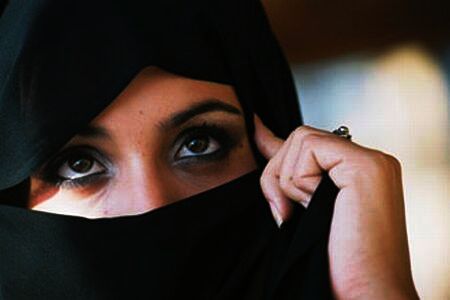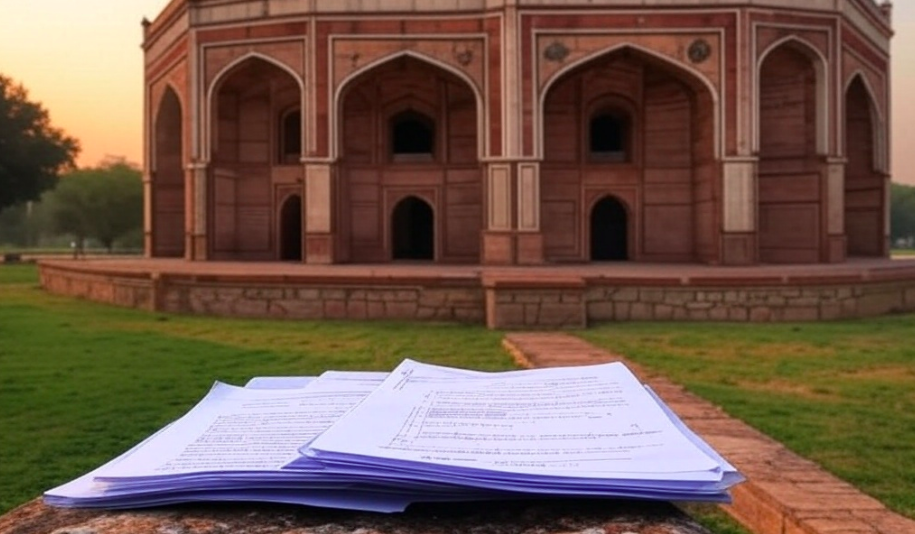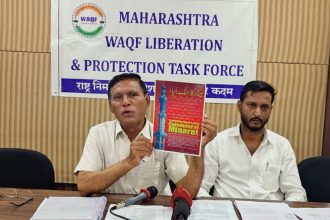Eman Hasan for BeyondHeadlines
“You educate a man; you educate a man. You educate a woman; you educate a generation.”
Whenever it comes to women education, this quote has been heard, written or used in discussion by many people.
Muslim women and their rights to education is one of the hotly debated topics in many countries, including India. When we hear the word education, we start thinking of school, university and career. In Islam, education encompasses a whole lot more than just going to school, giving exams going to university and starting a career.
To become a well-educated Muslim, one needs to learn reading, writing and comprehension, in addition to having good manners. And it is obligatory upon both parents to educate both son and daughter in a holistic manner.
Prophet Muhammad (PBUH) reported to have said that the best parents are those who provide best of education including best of manners.
Discrimination between boys and girls does not come from the society. This discrimination comes from individual families and their opinions about whether their daughters are as deserving as their sons when it comes to providing the opportunity for education.
India consists of several caste, culture, traditions, religions, language etc. Beside, India has rural area and urban area. You will find conservative thinking in Muslim families who live in rural as well as urban areas. When compared to urban areas, people in rural areas are more conservative. But the wave of social change has touched the Muslim in general and women in particular.
Muslim families are coming forward in the field of education and this is due to the impact of mass-media and social awareness. Muslim families are sending their children to English medium schools, but on the other hand people with low socio-economic conditions send their children in Madrasas (a center for Islamic education for children). There are many Madrasas who have changed their concepts of women education in the country they follow dual type which means along with Islamic studies they teach every subject that are taught in modern public school.
Education is an important variable which affect the status of women. When we talk about Muslim women education phenomenal change is seen in rural areas. The number of Muslim girls taking formal education is increasing day by day. Daughters are given preferences as compared to previous generation.
Mrs. Ruksana Khatoon, a mother of two daughters who lives in a village near Darbhanga said, “I want my daughters to be well educated both academic wise and religion wise. I sent them to school in the morning and to ustani (a lady who teaches to read Quran) in the evening so that they can hold both education and religious values. I was not allowed to go to school but I won’t let this happen to my daughters”.
When asked why she was not allowed education, she said ‘I was held back because of family tradition’.
There are many mothers like Mrs. Ruksana Khatoon who are either illiterate or have low level of education. The reasons given are family tradition, indifferent attitude of older people towards female education, non-availability of schools for girls in their village or financial problems.
In previous generations, the trend of sending daughters to school was weak among Muslim families, now they want to send their daughter to better school. It is the result of consciousness among Muslim women and their families about the importance of education.
Percentage of admission in graduation and post-graduation has sharply increased in today’s generation. Changing family values and opinions have opened up a gate for Muslim women to choose any academic field as they deem fit.
You can find Muslim women in many fields of education like engineering, bio-technology, journalism and many more. They are even opting for professional courses like MBA (Master of Business Administration), and MCA (Master of Computer Application).
Mr. Abdul Malik, who is a farmer by profession and is completely illiterate, and his wife with low level of education know reading Quran and Urdu. They have enrolled their daughter Ms. Rahat in a college for graduation
“I want my daughter to get higher education so that she can compete with today’s world, and cannot be fooled or taken advantage of, she will get confidence with her knowledge and will be able to take her own decision”, said Mr. Malik.
When asked Ms. Rahat what she wants to become after graduation, she says, ‘I want to be a Teacher’. Many Muslim women do not see religion as an obstacle for pursuing education and many see it as a crucial component of their progress.
It is very interesting that compared to previous generation, a change has been seen with the aim of education. Previously, majority of Muslim women got education not with the aim of economic independence but more for the sake of unforeseen eventuality that she might have to face especially after marriage. Now that direction has changed as many Muslim mothers want their daughters to become economically independent.
When Ms. Naila Manal, student of Journalism from Jamia Milia Islamia University, was asked with regards of importance of education especially among Muslim women she said, “It is an undeniable fact that the most important factor for development of human being is education. Islam has sanctioned the right to education for all Muslim women. If some Muslim don’t believe in allowing their daughter to go to school, to learn to read, to pursue their Master’s degree, to succeed in their respective careers, then it’s the belief and practices of such Muslims and not Islam.”
She further said, “Some people still need an effective motivation for the sake of coming towards providing education to their daughters because education is the only means to affirm self-identity or individuality to compete with the changing socio-economic environment and for economic independence.”
Muslim women are also taking up jobs, though their numbers are low compared to other women. This can be due to belated recognition of the importance of education of women among the Muslim community.
We have passed the obstacle of education but there are some obstacles that are to be passed when it comes to taking up jobs. There are two types of opinions exist on the topic of women employment: one is old-school and one is new. Old-school opinion comes with a big no-no from Muslim families because of traditional culture or modern prejudice. After education marriage becomes the top most priority with a famous line, ‘we have provided you education let your husband decide whether you can have a job or not’. Now she has no option but to sit back at home and wait for her marriage with no guarantee whether her husband or in-laws will allow her to work. This tradition has confine women to household work and looking after children and husband.
On the other hand, there are Muslim families who respect their daughter’s decision of taking up a job after their education so she can have self-identity. These families even search a match for their daughter who would be happy with her job. The percentage of families with this opinion is less but increasing at a slow and steady pace.
A noticeable change is seen among young Muslim women. They are vocal, conscious of their rights and have aspiration and that are no different from those of any other modern Indian women. With a newly gained freedom Indian Muslim women have distinguished themselves in various spheres of life like politicians, orator, lawyers, journalist and teacher.
There is no doubt that the stereotype image of Muslim women as educationally backward is changing and compared to previous generation the new generation has better option both in education and occupation.









